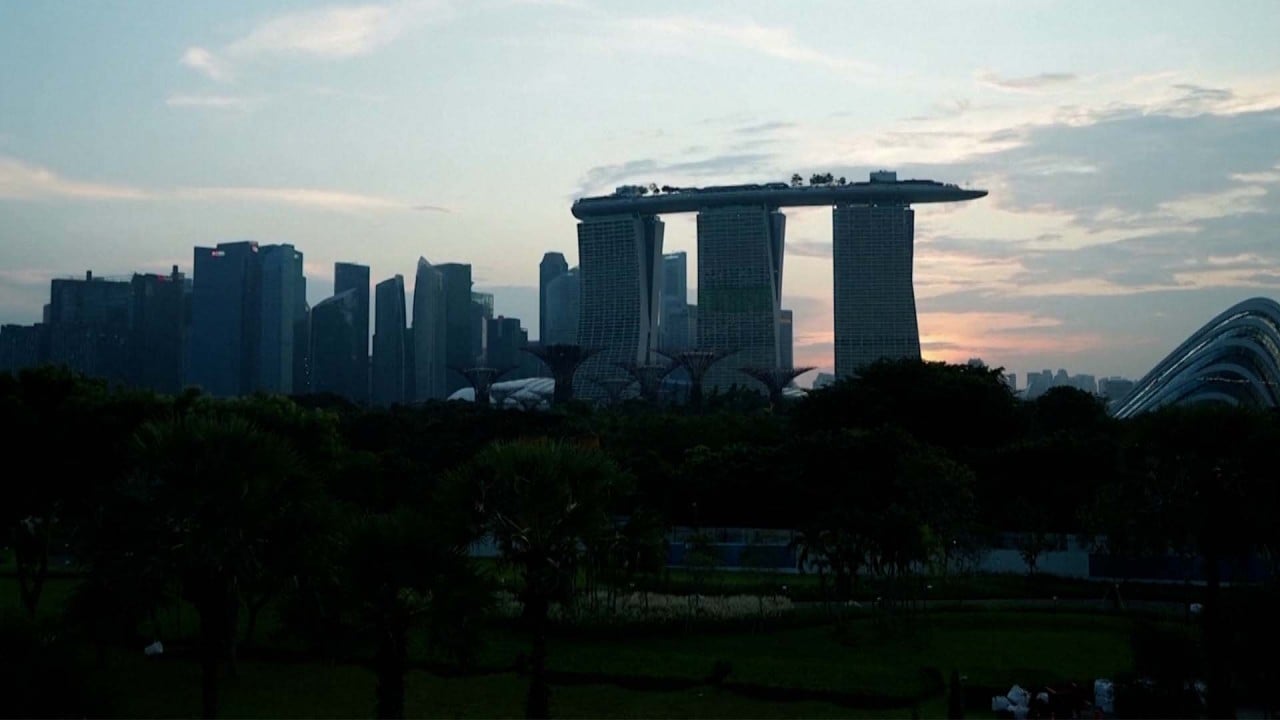
Global minimum 15% corporate tax may undermine Hong Kong’s tax incentives to attract businesses, lawmaker Robert Lee warns
- The new tax, agreed in 2021 by almost 140 countries, only applies to big multinational firms and won’t affect most Hong Kong companies
- Government will ‘strive to maintain tax competitiveness by upholding Hong Kong’s... low tax regime,’ says treasury chief Hui Ching-yu
The new level of tax will only apply to big multinational enterprises. Most Hong Kong companies, particularly small and medium-sized enterprises, will not be affected, the government said in a statement.
The minimum rate of 15 per cent will only be 1.5 percentage points below Hong Kong’s corporate tax rate of 16.5 per cent.
Under the new regime, if the effective tax rate of a multinational corporation in Hong Kong is lower than 15 per cent, other relevant jurisdictions will have the right to collect top-up tax.
“This effectively puts a floor on competition over corporate income tax, which would mean Hong Kong can no longer offer tax incentives to attract businesses,” said lawmaker Robert Lee Wai-wang, who is also the CEO of brokerage Grand Capital Holdings.
He conceded, however, that the global nature of the agreed tax meant Hong Kong would not be at a disadvantage.
“Hong Kong is not losing out to other markets as this is a global minimum tax complied by over 130 jurisdictions which covers all major economies already,” he said. “It is a level playing field.”
The global minimum tax, known officially as BEPS 2.0, was promulgated by the Organisation for Economic Co-operation and Development (OECD) in October 2021 with the purpose of ensuring that large multinational firms with annual revenue of at least €750 million (US$820.38 million) pay at least 15 per cent tax on income derived by all their operations around the world.
A KPMG report in 2021 said “many businesses in Hong Kong that have offshore profits or are making claims under incentive regimes may find that their effective tax rate is below the global minimum.”
“Hong Kong is likely to adopt the provisions of BEPS 2.0 and may also take steps to update its tax base to ensure that its tax system for multinational enterprises remains fit for purpose in light of the international tax changes,” the accountancy giant’s report said.
“Multinationals will need to evaluate whether existing group structures and intragroup transactional arrangements are still appropriate or need to be restructured.”
In 2021, Hong Kong joined more than 130 jurisdictions in committing to the implementation of the minimum tax rule. Financial Secretary Paul Chan Mo-po in his budget speech this year has indicated Hong Kong will introduce the rule from 2025 onwards.
Assuming the consultation exercise gets the support it needs, the government will submit a law change proposal to the Legislative Council in the second half of next year to change the Inland Revenue Ordinance (Cap. 112) to implement the new rule.
“In formulating the legislative proposal, the government will strive to maintain Hong Kong’s tax competitiveness by upholding Hong Kong’s simple, certain and low tax regime,” said Secretary for Financial Services and the Treasury Christopher Hui Ching-yu in a statement.
“As an international financial centre and a responsible member of the international community, Hong Kong has all along been supportive of international efforts to enhance tax transparency and combat tax evasion.”
The government has proposed allowing multinational companies to decide how the new tax rule will be allocated among its Hong Kong entities to provide for flexibility. It will also provide safe harbours in the framework to “relieve compliance burden and enhance tax certainty”.
The government will also allow the multinationals to submit a single top-up tax return for the purpose of both the global minimum tax and local tax rules to minimise the compliance burden.


